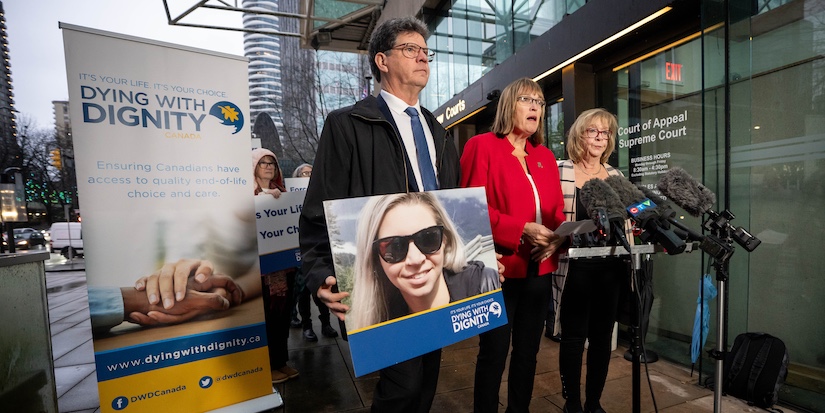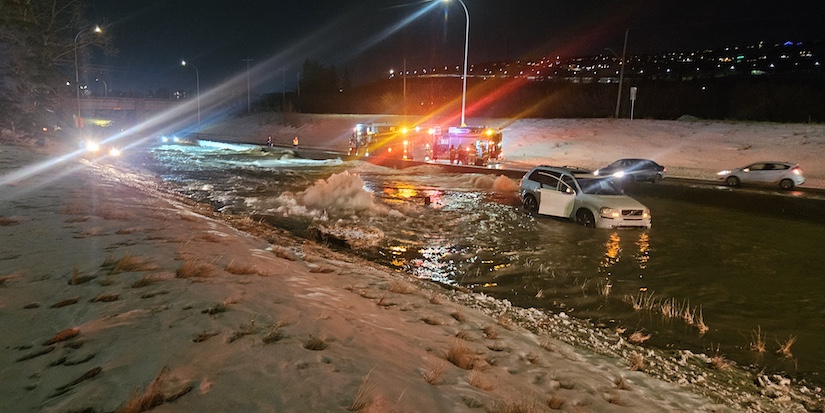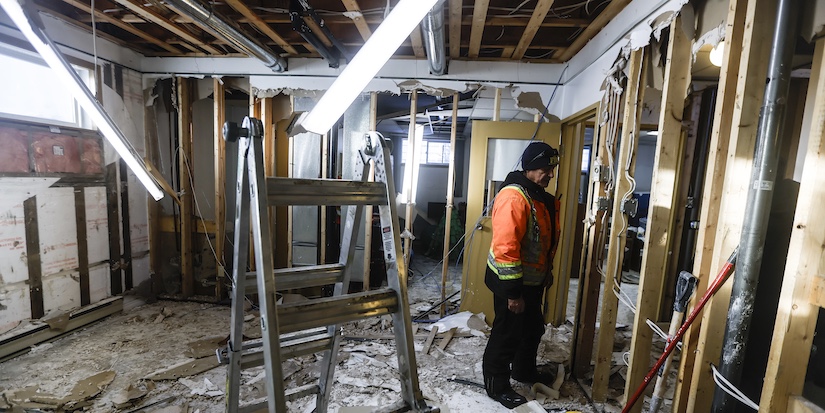Latest News
Taking a RISK to kill cancer
Cancer kills. It kills because it spreads. And once cancer spreads, it’s harder to treat. “Cancer is like a dandelion in your garden,” says Dr. Sandra Dunn, founder and CEO of Richmond biotech firm, Phoenix Molecular Design. “You may dig it out, making sure you’ve left none of the root, but you don’t always know if it’s gone to seed or not. Often times those seeds grow all over the place.”
Cancer kills. It kills because
it spreads. And once cancer spreads, it’s harder to treat.
“Cancer is like a dandelion in
your garden,” says Dr. Sandra Dunn, founder and CEO of Richmond biotech firm,
Phoenix Molecular Design. “You may dig it out, making sure you’ve left none of
the root, but you don’t always know if it’s gone to seed or not. Often times
those seeds grow all over the place.”
When cancer comes back, it is
these widespread seeds taking root, causing new tumours, that eventually cause
pain and death, she says.
“We’re working on the most
aggressive breast cancer, triple-negative. It’s the most deadly, the most
likely to come back and the most likely breast cancer in younger women,” says
Dunn.
Dr. Emma Guns, Associate
Professor in the UBC Faculty of Medicine, is just back from a sabbatical in
Adelaide, Australia where she spent a year studying breast cancer research.
“Triple-negative breast cancer
is the breast cancer for which we have very, very few therapies. It’s the most
aggressive breast cancer.”
When asked about Dunn’s
treatment, Guns says “this will target tumours that don’t respond” to other
treatments. “This therapy will work regardless. It will treat a breast cancer
subtype with limited treatment options so that’s the benefit here.”
Dunn points out another problem
with cancer: “We might remove the original breast lump, being careful to get
all of it, using chemotherapy to try to kill off any bits left behind, but we
don’t always know if it has already sent cancer seeds throughout the patient’s
body. It takes a while for those seeds to turn into tumours big enough to
find.”
The problem then is, according
to Dunn, by the time cancer cells spread, they’ve learned to spit out the
regular chemotherapy, just as your cat or dog spits out a pill hidden in their
food.
Now, Dunn’s company has
designed a special protein called RISK. The protein molecule shuts down this
cancer both in the original breast lump and in tumours spread throughout the
body. Dunn’s protein, RISK, mimics a natural compound so the cancer cells
swallow it, then die of starvation, like a weed in a drought. The compound cuts
the cancer cells’ supply line, killing this kind of breast cancer, buying time,
buying hope and buying life.
Even if the cancer seeds are
too small to detect, RISK keeps them from growing and kills off the tiny
tumours, like hoeing the garden, to leave the patient healthy, says Dunn.
“The advantage of drugs like
RISK is that they don’t make people as sick as regular chemotherapy,” Dunn
says. “Patients can just take a pill at home so they don’t have to go to the
hospital for an IV. It means you can go about your daily life because RISK just
stops one process, the fuel line to the tumours, so you aren’t more likely to
catch a cold or an infection because your immune system is not damaged.”
UBC’s Guns says, “Regular
chemotherapy is pretty harsh in terms of side effects.”
She says that Dunn’s compound
offers the hope that “the toxicity profile is going to be much reduced with
this targeted therapy.”
After many stages of testing,
Dunn is now growing real human triple-negative breast cancer tumours in mice so
she can treat the mice with RISK.
“The results are exciting,” she
says.
New treatments take a long time
and a lot of money to develop. After years as a researcher, Dunn took out a
second mortgage on her home to start Phoenix Molecular Design.
“We spent our children’s
inheritance. Now, thanks to private investors and matching funds from the
National Research Council Industrial Research Assistance Program (NRC-IRAP) we
have a good start towards the money for this new phase.”
If things pan out, Dunn says, “after about 6 months’ research, the next step is to seek FDA approval to give the RISK pill to women with triple-negative breast cancer in a drug trial.” Dunn says, “Then, we will go for federal approval so we can start offering real hope and start saving lives.”




























